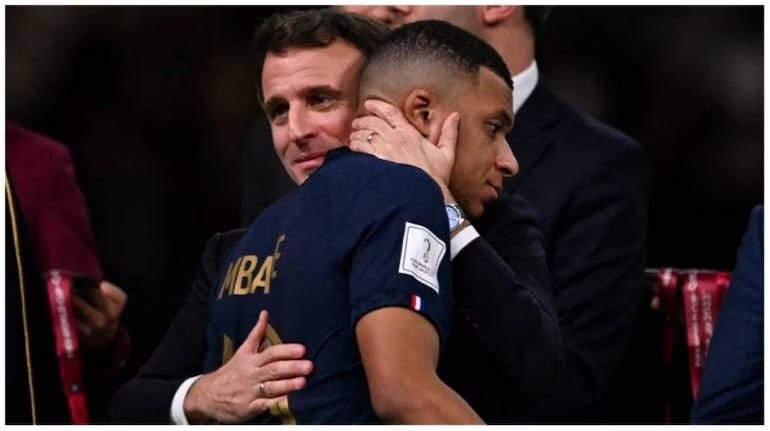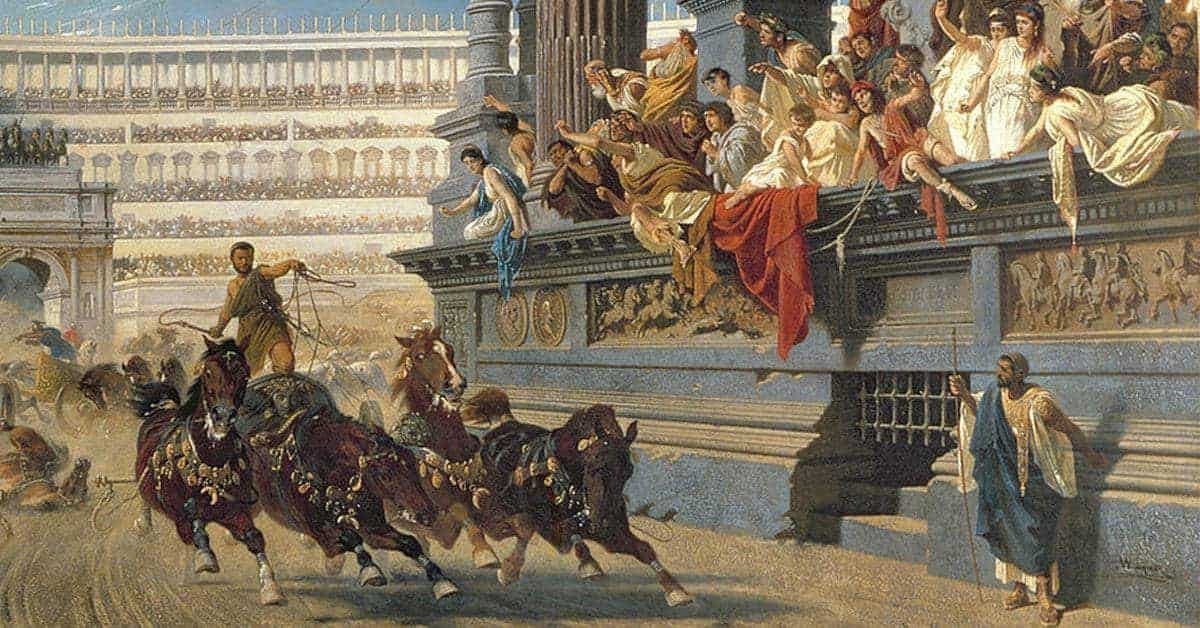MEDIEVAL MONARCH MACRON
A rare (or not) intersection between medieval history and sporting spectacle
We watched the World Cup final by the Caribbean sea, with cold beers for brunch - and then, as the match progressed towards its extended, marvellous finale - for lunch as well. I wanted Argentina to win, but didn’t really mind either way. So it all worked out nicely.
During and after the game I was interested to see TV pictures showing the President of France, Emmanuel Macron, cheering his team from the stands and then consoling them on the pitch. Or at least, attempting to console them. The mercurial young French forward Kylian Mbappé seemed not exactly consoled and not terribly impressed to be embraced by the President. Sportsmen are often told to keep their noses out of politics. You can’t entirely blame them for wishing the same were true in reverse.
Anyway, I’m telling you all this because I read today that one sniffy pundit in France has accused Macron of acting like a ‘medieval monarch’, seeming to believe that his presence and touch imparted some unique healing power.
‘It is difficult not to see a form of immoderation,’ said the political commentator Matthieu Croissandeau, ‘what the Greeks called hubris… In the Middle Ages they called it the royal touch.’
This was only one line among many, as French commentators lined up to snipe at Macron - not so much a subspecialism of journalism as a national obsession. But the ‘medieval monarch’ image stuck to the extent that other newspapers around the world picked it up. And so we have Macron of the Middle Ages - a regal figure presiding over sport as though it, and everything else, belonged to him.
Like most idle deployments of the term ‘medieval’ as an insult, I’m not sure much thought went into M. Croissandeau’s barb. Yet there is perhaps more to it than he meant. Because actually, in the Middle Ages, sport and royalty were tightly intertwined. Very often kings did preside over big sporting contests, and they did hobnob with the finest contestants.
I’m thinking, to give one example from the very start of the Middle Ages, of Byzantine rulers sitting high in the stands at the Hippodrome in Constantinople, watching charioteers hurtle violently around the track below. In early medieval Byzantium, emperors were positively obliged to engage with sport, both as part of the public display of imperium and as a matter of practical politics. The charioteer supporter factions known as the Greens and the Blues wielded significant influence over matters of state and law and order. When thwarted they could cause mayhem: the Nika Riots in 532AD were sparked by a breakdown in trust and communication between the Emperor Justinian and the Hippodrome factions; they ended with half the city destroyed and hundreds, maybe thousands, of people dead. I wrote a little about this in my book Powers & Thrones, and ever since I’ve been fascinated by the world of Byzantine sport: wouldn’t you watch a lavish HBO series about charioteers and emperors, in which racing and violence and sex and power were all rolled into one?
That’s on my list. But so too is another medieval sporting world, this one set in Emperor Macron’s home country. Listeners to my podcast This Is History may have heard the episode(s) in Season 1 in which I talk about Plantagenet-era tournaments.
Here too mingled elite sporting competition and royal politics. During the heyday of twelfth-century tournaments - the 1170s - teams were owned and led by princes, and their star performers attracted the sort of transfer fees that elite European football teams splash on players like Mbappé. Perhaps the greatest tournament prince of them all was Henry The Young King - eldest son and heir of Henry II of England.
HYK was a sports nut to his core, and tried very often to bind together his love of athletic competition with his desire to be regarded as a significant ruler. It was not an entirely successful project, despite all the money and time HYK lavished upon it. I wonder if we could say for HYK almost the same thing as another waspish French pundit said of Macron yesterday: ‘What is striking with [him] is that he persists in his attempts to capture the collective emotion of the French people without ever managing to do so.’
We could extend a long way this list of medieval monarchs who were addicted to sport, if we wished. I’m thinking, off the top of my head, of Henry II’s addiction to hunting, of Frederick II Hohenstaufen’s obsession with falconry, of King John’s love of gambling, of Edward II’s much-derided fondness for peasant sports like rowing, of Edward III’s fondness for fourteenth-century tournaments, in which jousting, rather than the free-form melée now dominated, of Edward IV’s use of the tournament as a forum for international diplomacy. And so on.
If any of those (mostly) formidable medieval monarchs were alive and in power today I have no doubt that they would have been out in Qatar doing exactly as Macron did. Being seen, being involved, reasserting their claim to majesty through the medium of athletic contest. They would have understood their role as consisting of far more than just providing the royal touch when required; for them, sport and power went hand in hand.
Should we criticise our leaders today for acting in the same way? It’s easy to do, of course. One of the strongest lines of cant that attaches to sport today is that it is essentially ‘popular’ entertainment - ie that it belongs to ordinary people first, and that all attempts by the wealthy and powerful to use sport as a form of self-aggrandisement amount to hijacking, or ‘sportswashing’ or whatever the latest buzzword may be.
Alas, that is pleasant-sounding, romantic hokum. Ordinary people may well enjoy sport and play it and support it with their time, attention and money. (I would describe myself as a sports nut, so I know whereof I speak.) But the reality is that the sort of elite sport that millions or billions of us watch on the television, contested by millionaires in vast, purpose-built arenas, emblazoned with corporate logos and overseen by national governments - this is not entertainment ‘of the people’.
The people are necessary to make the noise and pay the TV subscriptions and buy the fizzy drinks and the replica shirts, and to tweet about it and whatnot. But modern sport is a circus, put on by statesmen and oligarchs, and which could not exist without them.
To believe otherwise is naive. And to be confused or offended by the sight of those bigwigs trying to insert themselves amid the moments of highest drama is to make a gigantic category error.
Like it or not, King Emmanuel the medieval monarch had every right to swan around among his tournament stars. We have every right to laugh at his pomposity, but not to expect the world to be any other way.




I'm imagining Marc Bloch reading this post. The idea of Macron as a sort of modern thaumaturge king would have been more than interesting to him.
I was all upset about the tournament and the inhumanity of the Qataris and the greed of FIFA and everything else and then the games started and I forgot all that and became a World Cup Zombie and even won money on Argentina but now I have World Cup Withdrawal.
Is Macron taller than Messi?